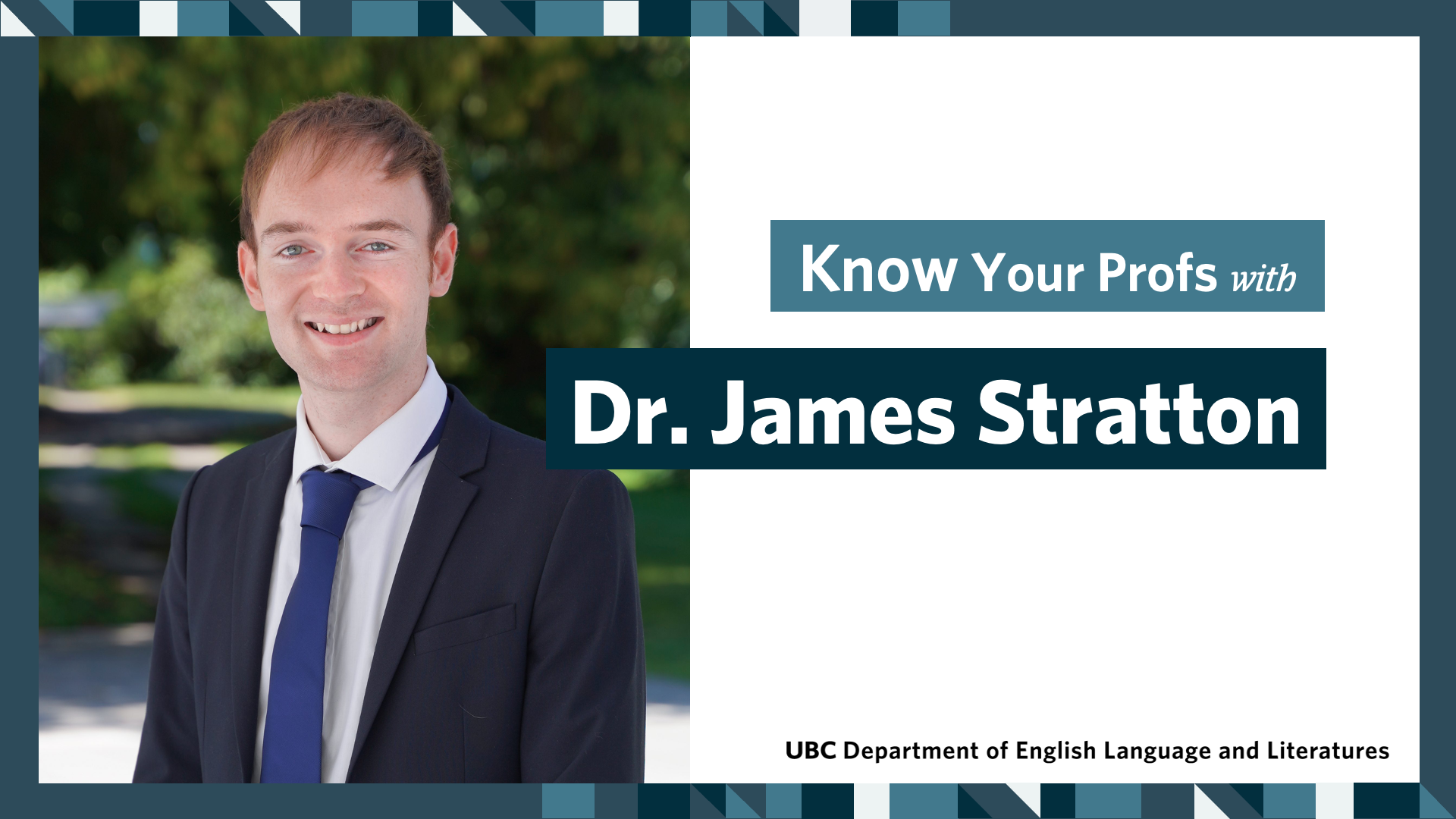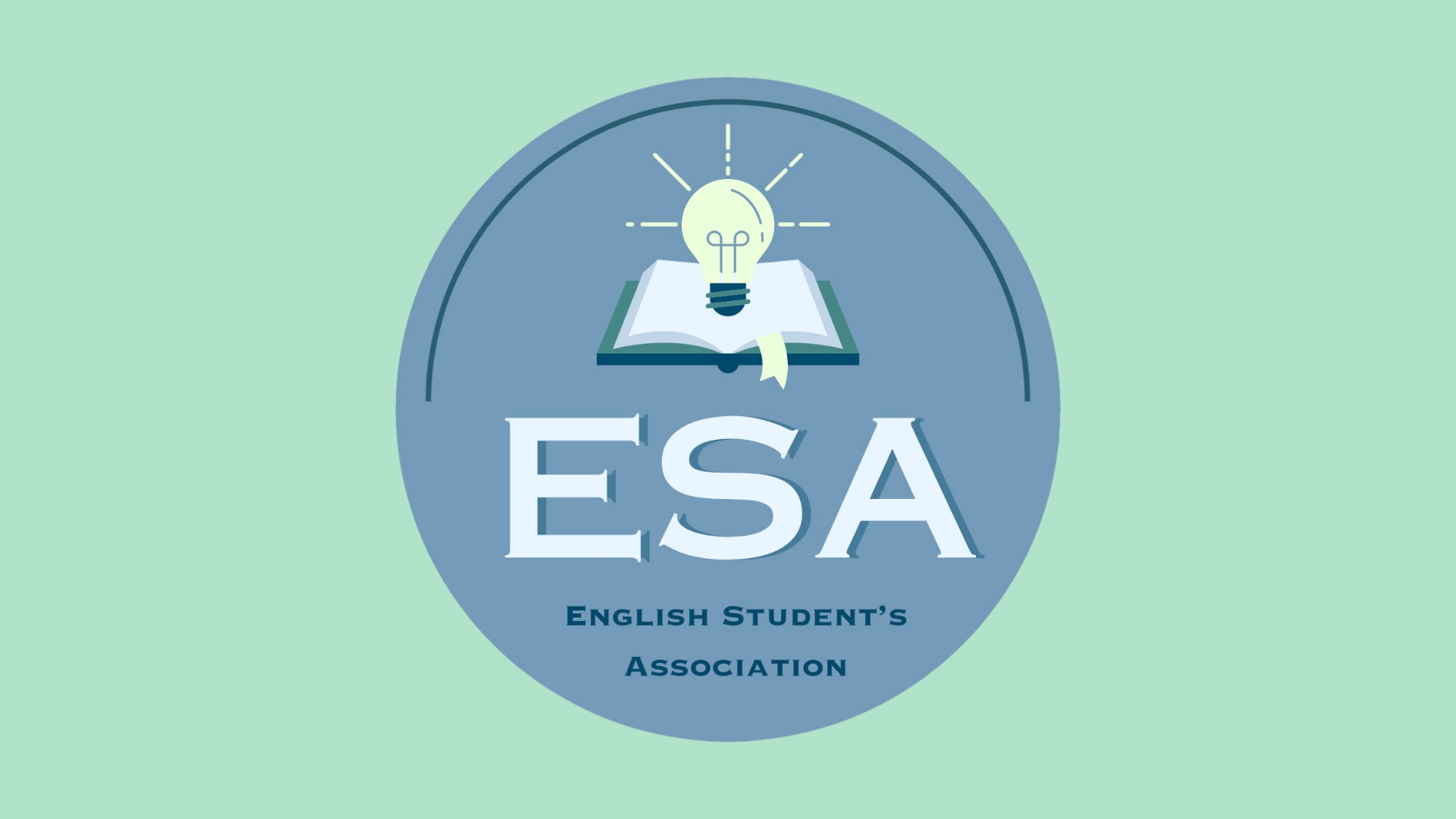

Dr. James Stratton is a Germanic linguist in the UBC Department of English Language & Literatures. He specializes in variationist sociolinguistics, historical linguistics, and second language acquisition, with a focus on intensifier variation throughout the history of the English language and across other Germanic languages. He is particularly interested in the intersection between language and society, and how social factors such as gender and age influence the conscious and unconscious choices we make in everyday conversation.
Whether you’re a graduate student looking for a thesis supervisor whose academic vision matches your own, or an undergraduate looking to learn more about an ENGL instructor before signing up for their courses, the Know Your Profs series is created with your curiosity in mind. In this instalment of EL&L Know Your Profs, Dr. James Stratton shares with us why there are so many silent letters in English, and why there is no one “right” way of speaking English.
What sparked your interest in your research area?
I study language variation and change. When I first started studying languages, in particular Germanic languages, I noticed that many of the words were similar, but they were pronounced slightly differently. I also noticed that their meaning differed a little from language to language, but the connection between the words was still clear. It was an interest in these historical connections that sparked my interest in historical linguistics and language change.
As I started to travel, I also noticed that it is not just geography that influences the way we speak, but social factors such as identity, gender, and age also influence the conscious and unconscious choices we make in everyday conversation. I was able to take some courses in language and linguistics during my undergraduate degree and was then fortunate to specialize in linguistics during graduate school. When researching language variation and change became more of a hobby as opposed to a requirement, I realized that academia was certainly the path for me.
What does it mean to you to study the English language?
Well, when people learn that I’m a linguist, they start to get concerned that I will correct how they speak. This is, of course, not what linguistics is about, and is certainly not what linguists do! In fact, as a researcher of language variation and change, I try to authenticate and validate the way people speak and illustrate to them that there is no one “right” way of speaking and it is okay to speak differently. For me, studying English means learning about its speakers, its history, its culture, and its diversity. The idea that there is a homogenous way of speaking in any language, and certainly in English, is a fallacy. I think that is a crucial take-home message for any student of the English language.
Which course(s) do you teach?
I teach two courses on language history: ENGL 318 History of the English Language: Early History and ENGL 319 History of the English Language: Later History. ENGL 318 surveys the language, history, and culture of Early Medieval England, starting with its Indo-European origins. Our approach will be an interdisciplinary one, which will draw upon evidence from linguistics, literature, history, historiography, and archeology.
ENGL 319 will examine the major developments from Middle English (1100-1500) to the present (21st century), paying particular emphasis to how external factors, such as language contact, have shaped the types of English varieties which are spoken today.
What are your favourite questions students have asked you about the English language?
“Why does English have lots of silent letters?”
I love this question! People like to complain to me about how strange English is, and inconsistencies in English spelling are certainly ubiquitous. However, in many cases, modern ‘irregularities’ of spelling can be explained by looking back in history. Spelling, and other oddities in the language, are simply a product of various historical changes, and years of language contact with neighbouring languages. For instance, knee is spelled with a k because historically the k was pronounced. We still see this with the pronunciation of the German word Knie (knee) where the k is still pronounced. The way we pronounce things changes constantly, but spelling is much more conservative. So even though we no longer pronounce the k, this historical pronunciation is retained in spelling.
What can students expect from your classes?
Students can expect to learn transferable skills which they’ll be able to apply to the other courses they take during their time at UBC. My approach to teaching is a student-centred one, in which group work and class discussions are important for generating and sharing ideas. Expect me to ask you to draw upon your own experiences in class. We all have different experiences, speak different varieties of English, have different levels of proficiency in other languages, and various areas of interest. I try to utilize and highlight this in the classroom. We will make connections between the course material and professional or disciplinary applications so that the content is as relevant to your interests and backgrounds as possible.
What advice would you give your first-year and graduating undergrad self?
You may not realize it at the time, but everything you learn in your classes serves some purpose! Try to remember this and make the most of it. There may not be another time in your life when you will have the opportunity to take a such diverse range of courses. When you are assigned to write a paper for a class, try to think of it not as a chore you have to complete for class. Instead, try to see it as an opportunity to research a topic that intrigues you and speaks to you. The paper is also a great chance to get some feedback on something you may want to consider publishing in the future.


